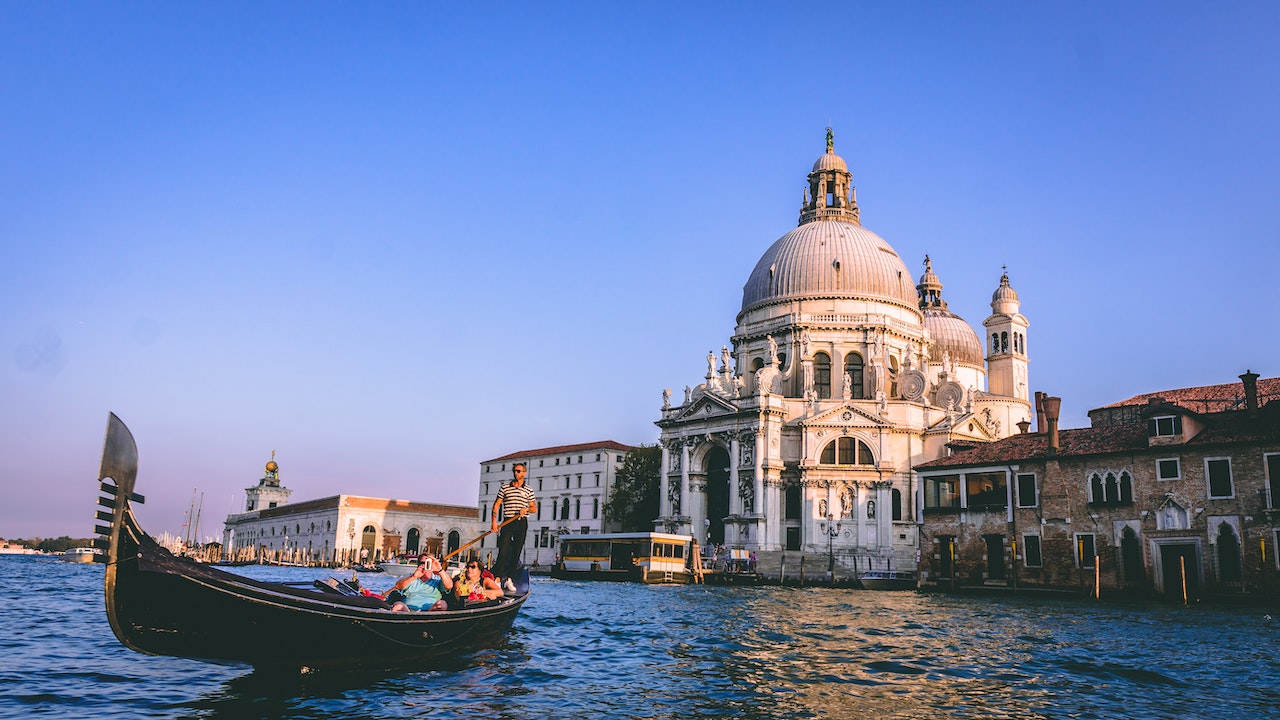Exploring Europe with kids can be an incredibly rewarding experience for families, with so much history, culture, and natural beauty to discover. However, planning a family trip can also be overwhelming, with so many details to consider and logistics to manage. That’s why we’ve put together this guide to help you plan the perfect family trip to Europe, step by step.
From deciding on your destination and creating an itinerary to booking flights and accommodation, we’ll cover all the essential elements of travel planning. We’ll also share some tips and tricks for traveling with kids, including how to keep them entertained during long flights or train rides, and how to find family-friendly activities in your chosen destination. Whether you’re a seasoned traveler or planning your first family trip to Europe, this guide will help you create lasting memories with your loved ones. So, let’s dive in and start planning!
1. Make A List Of The Places You Plan To Visit
When exploring Europe with kids, making a list of the places you plan to visit is essential for a smooth and stress-free trip. Europe is a vast continent with a diverse range of destinations, from historic cities to scenic countryside and everything in between. By making a list of your must-see places, you can plan your route and ensure that you don’t miss any of the highlights.
2. Look For Family-Friendly Destinations In Europe
When exploring Europe with kids, it’s important to look for family-friendly destinations that cater to your children’s needs and interests. Fortunately, Europe is full of destinations that offer plenty of fun activities and attractions for families.
The top family-friendly destinations in Europe, which are also well-liked by adults:
- Paris, France
- Barcelona, Spain
- Amsterdam, Netherlands
- Rome, Italy
- London, England
- Copenhagen, Denmark
- Vienna, Austria
- Munich, Germany
- Dublin, Ireland
- Edinburgh, Scotland
3. Get Acquainted With The Distances Between Your Desired Destinations To Help Plan Your Itinerary Effectively.
Once you have identified the destinations you wish to visit, it’s time to acquaint yourself with the distances between them and determine how many you can realistically cover within your available time frame. To do this, it’s recommended to review researched itineraries. However, before delving into them, it’s useful to take a look at the map and familiarize yourself with the distances involved between your desired destinations.
4. Look Over The Trip Choices That Are Suitable For Kids.
There are many options to consider that offer engaging and entertaining experiences for children. When choosing a trip, consider the ages and interests of your children, as well as any logistical concerns such as travel time and budget. With so many great options to choose from, there’s sure to be a European adventure that your kids will never forget.
5. Plan Your Route Around Europe.
Planning a route around Europe when traveling with kids requires careful consideration of various factors. These include the children’s ages, interests, and energy levels. Opting for shorter routes with more frequent stops is ideal when traveling with younger kids, while older kids may prefer a longer route with more adventure. The train system is an efficient way to move between cities, while renting a car provides more flexibility. Include activities such as museums, amusement parks, zoos, and outdoor adventures. Logistics, travel time, and budget should also be considered when planning a route around Europe.
6. Find And Book Accommodation Suitable For Families In Europe.
After you have decided on your destination, it is highly recommended that you make a booking for your accommodation. This can be easily done through various platforms that offer free cancellation policies, giving you the flexibility to make changes if necessary. When it comes to family-friendly accommodation in Europe, there are many options available in different forms to suit your needs. These may include spacious apartments, hotels with family rooms, resorts with private villas, and even hostels with special facilities for families. By booking in advance, you can secure the perfect accommodation for your family and ensure a stress-free vacation.
7. Book Your Itinerary Around The Top Sights And Family-Friendly Day Trips
After finalizing your itinerary and lodging arrangements, it’s advisable to reserve tickets for the primary tourist destinations and activities. To ensure a smooth experience, consider reserving family-friendly tours that cater specifically to children. Be sure to make these bookings in advance.
8. Ready, Set, Go: Packing Your Luggage And Organizing Travel Documents
Packing your luggage and organizing travel documents are essential components of preparing for any trip. When it comes to packing, it’s important to consider the duration and nature of your trip, as well as the luggage restrictions of your airline or mode of transportation.
- If you’re traveling by plane, you’ll need to adhere to the airline’s guidelines on the size, weight, and number of bags you can bring.
- In terms of organizing travel documents, it’s crucial to have a valid passport and any necessary visas, as well as printed or digital copies of your flight itinerary, hotel reservations, and other important information.
- One useful tool for keeping track of all your documents in one place is a travel organizer, such as a passport wallet or travel folder.
- With proper preparation and organization, you can make the process of packing and preparing your travel documents as smooth and stress-free as possible.
More Tips For Families Planning To Visit Europe With Children
- When traveling to Europe with young children, it’s important to pack the essential items that your baby will need, such as diapers, formula, and baby wipes. Additionally, it’s helpful to have a stroller, carrier, or car seat to transport your child comfortably and safely.
- Many European cities offer playgrounds where your children can burn off some energy and have fun.
- You can also find public restrooms with baby changing stations in many places, such as airports, train stations, and shopping centers.
- It’s important to note that meal times in Europe can differ from those in other parts of the world, with many restaurants closing between lunch and dinner. However, there are many kid-friendly restaurants in Europe that offer meals suitable for children, particularly in Italy, where pasta and pizza are popular choices.
- If you need to purchase additional baby essentials while in Europe, you can visit major supermarkets or pharmacies, such as Carrefour, Tesco, or Boots, where you can find a range of baby products.
Who Is Fifth Element?
Looking to feed your wanderlust? Meet 5th Element Travel, the travel gurus who believe that travel is not just a hobby, it’s a way of life! Our team of travel enthusiasts is dedicated to helping you discover new places, meet locals, and broaden your horizons with unique experiences. Not sure where to start? Check out our travel blog for expert tips on everything from finding the best hotels to indulging in mouth-watering local cuisine. Our articles provide you with all the essential information you need to plan the ultimate adventure, including historical insights, cultural etiquette, language translations, currency exchange rates, weather forecasts, and more. Come explore the world with us!
This post was created with the assistance of San Francisco Bay Area’s Luxury Travel Agency, All Business Class. Have you ever wanted to go on a business trip or vacation but the cost was out of your budget? All Business Class is here for you. They offer clients wholesale pricing that the general public can’t get and, as an added bonus, they earn commissions from their clients so it’s a win-win situation all around! You save money and we earn a commission, so it’s a win-win for everyone. They also offer vacation planning services such as hotel accommodations, restaurant reservations, private jet or yacht charter service and pretty much anything else you can think of. Get in touch with them now if this sounds like something you want help with because there are no limits to what they will do.

